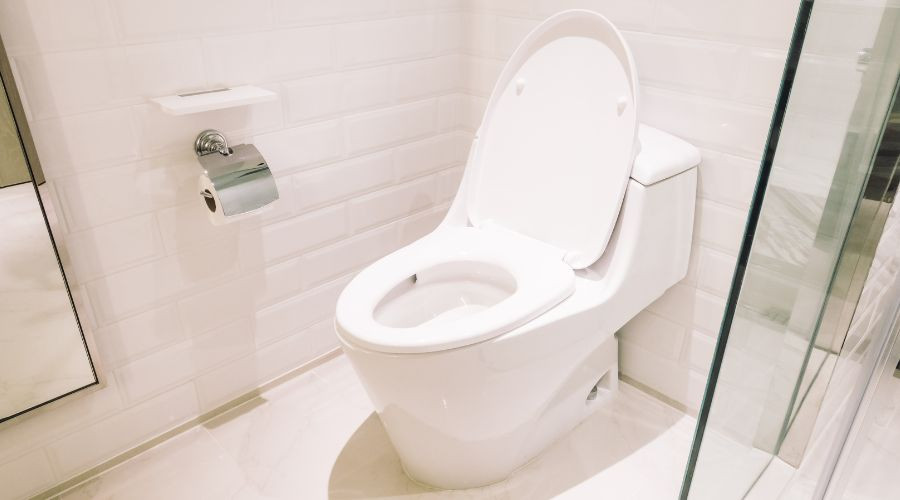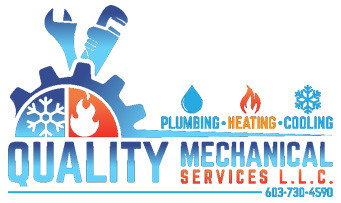How to Better Care for a Home’s Toilets
If homeowners are tired of dealing with stubborn toilet clogs and problems that disrupt their daily routine, there are ways to help prevent these issues. This post will share some signs to identify toilet problems in need of toilet repair and replacement, as well as tips to help prevent clogged toilets and sewer lines.
Signs That Toilet Repair or Replacement Is Needed
 Recognizing early warning signs that a toilet needs repair or replacement can help avoid unexpected bathroom disasters, high water costs, and costly water damage. Toilet problems often provide clear warning signals before major issues develop. Some signs to call a plumber for toilet repair or replacement include:
Recognizing early warning signs that a toilet needs repair or replacement can help avoid unexpected bathroom disasters, high water costs, and costly water damage. Toilet problems often provide clear warning signals before major issues develop. Some signs to call a plumber for toilet repair or replacement include:
- The toilet is constantly running
- Visible leaks around the toilet
- Frequent clogging, despite proper usage
- Weak or incomplete flushes
- Cracks in the toilet, whether on the bowl or tank
- Toilets requiring multiple repairs within a short timeframe
- Old toilets over 25 years old
A plumber can inspect the toilet to determine whether a repair or a toilet replacement is needed. Replacing the toilet will be more likely than repairs for toilets requiring frequent repairs, and older toilets over 25 years old. Older toilets typically use 3.5 to 7 gallons of water per flush, whereas modern high-efficiency toilets can use as little as 1.28 gallons. This efficiency difference can reduce water bills significantly. Additionally, toilets exceeding 25 years of service have generally reached their functional lifespan. Upgrading to a newer model improves reliability and performance while saving water and money.
Tips for Preventing a Clogged Toilet
 Preventing toilet clogs starts with being mindful about what gets flushed down toilets. Toilet blockages rank among the most common household plumbing issues, but most can be avoided with proper flushing habits. Only toilet paper and human waste should be flushed. Other items like paper towels, wipes, hair, dental floss, feminine hygiene products, cotton balls, and more don't break down properly in the plumbing system and can clog toilets and sewer lines. Homeowners can place a small trash can in the bathroom to discourage guests from disposing of non-flushable items in the toilet.
Preventing toilet clogs starts with being mindful about what gets flushed down toilets. Toilet blockages rank among the most common household plumbing issues, but most can be avoided with proper flushing habits. Only toilet paper and human waste should be flushed. Other items like paper towels, wipes, hair, dental floss, feminine hygiene products, cotton balls, and more don't break down properly in the plumbing system and can clog toilets and sewer lines. Homeowners can place a small trash can in the bathroom to discourage guests from disposing of non-flushable items in the toilet.
Even with toilet paper, moderation is key. Using excessive amounts of toilet paper in a single flush often leads to clogs. Try to use a smaller amount for each bathroom visit. However, when needing to use larger amounts, consider flushing more than once, sending down smaller amounts of toilet paper with each flush. A simple conversation about proper bathroom habits for households with children can help avoid toilet clogs and emergency plumbing calls.
The Connection Between Sewer Lines and Toilet Performance
A home's sewer line plays a pivotal role in toilet performance and functionality. When sewer lines develop problems like a sewer line clog, the performance of toilets can suffer. Backups and recurring clogs in the toilet may signal deeper drainage system issues rather than isolated toilet problems. These warning signs shouldn't be ignored. Understanding this connection can alert homeowners to sewer line problems and help avoid more costly plumbing repairs down the road.
The connection also goes the other way, with toilet usage affecting sewer lines. A household’s everyday toilet habits directly impact the sewer line. Flushing items like feminine hygiene products, dental floss, excessive toilet paper, paper towels, and wipes, even if they are labeled "flushable," can lead to a clogged sewer line, even if they make it past the toilet. Additionally, what goes down the home’s other drains can affect sewer lines. So, things like grease, oil, food, and more should be kept out of drains to avoid a sewer line clog and the household and toilet problems it can cause.
About Quality Mechanical Services
Quality Mechanical Services is a heating, air conditioning, and plumbing company serving the Conway community. They provide free estimates, straightforward pricing, and on-time service. Call them for clogged toilet repair services in Conway, NH.











